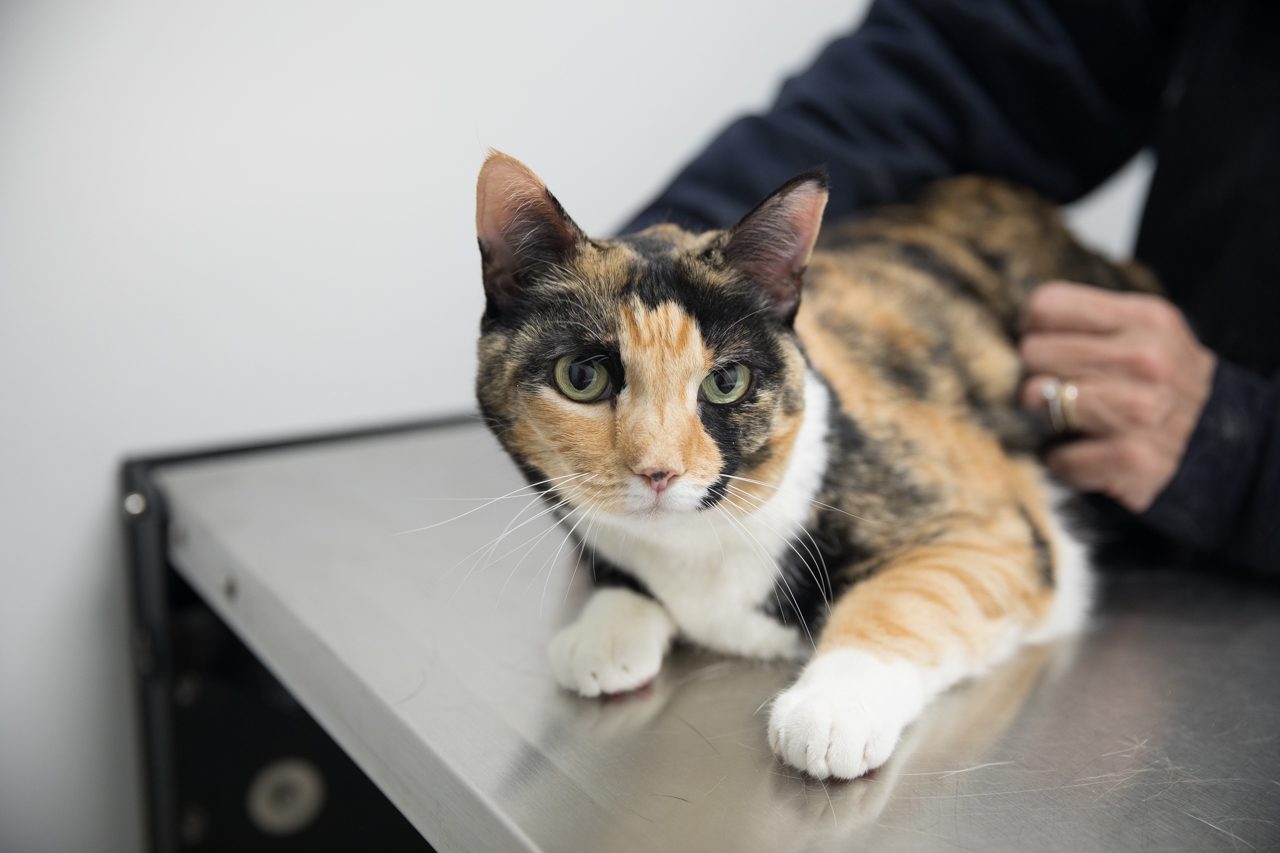
What to do if Your Cat Has Tapeworms
Dr. Anna Foster
Call & Speak with a doctor Open 24/7, Even Holidays!
Walk in today for:
Emergencies
Point-of-Care Ultrasound
Urgent Care
X-Rays
Diagnostics + Testing
End-of-Life Care
Surgery
Treatment + Hospitalization
Have you ever heard of tapeworms? Did you know this is a problem that could potentially affect your cat? What should you do if your cat has tapeworms or if you suspect that he might?
Tapeworms are a type of intestinal parasite that are fairly common in cats. Cats get tapeworms from swallowing fleas that are infected with tapeworm eggs. If your cat has tapeworms, you need to take care of the problem as soon as possible. Read through the article below to find out more about dealing with tapeworms in your cat.
Go to the Vet
If you notice signs of worms in your cat’s stool, go to the vet right away. Your cat will need to be given a deworming medication to remove the tapeworm from his body. You may see the tapeworm in his stool after the deworming medication has been given, although it may take several bowel movements before all of the worms are expelled.
Your vet will give your cat a specific type of dewormer, either oral or injectable. Only prescription-strength vet-administered deworming medication is strong enough to get rid of tapeworms, so don’t rely on over-the-counter medicine for this problem.
Carefully Dispose of Feces
When scooping your cat’s litter box or otherwise disposing of feces you may find in the home or yard, be very careful about proper handling methods. This should be true all the time, but especially so if your cat has a tapeworm. Put on gloves before handling feces and before cleaning out the litter box, too.
You should scoop your cat’s litter box at least twice per day and clean the litter box thoroughly every couple of days when dealing with tapeworms. Of course, if you have multiple cats using one litter box, you will need to increase the frequency of your cleanings.
Clean Bedding
If your cat has a tapeworm, it is very important to keep up with cleaning his bedding regularly until the problem is resolved. You should also clean his bedding even if he doesn’t have a tapeworm, but you don’t have to be as proactive about it when you have a healthy cat.
Wash your cat’s bedding every couple of days in hot water until the tapeworm clears up. If your cat also has fleas at the same time, you may want to wash his bedding daily until the flea problem and tapeworm are both resolved.
Treat for Fleas
Treat your cat for fleas. Since fleas are the method of transmission when it comes to cats getting tapeworms, getting rid of fleas will help your cat reduce the risk of further tapeworm infections, too. Additionally, you won’t risk your cat developing a chronic tapeworm problem if you are able to remove fleas from the equation.
Keep your cat on a regular flea preventative medication for best results. A topical medication – or oral medication may work, depending on your specific cat. And if necessary, talk to your vet about considering a flea bath to remove the majority of the problem all at once.
Treat Other Pets
Tapeworms can be spread to other pets by ingesting infected fleas. If your pet is diagnosed with a tapeworm, take precautions against other pets in your household contracting this parasite too. Have your other pets tested, and if they are free from tapeworms, treat them for fleas right away.
By keeping up with regular flea treatments for every pet in your home—not just for your infected cat—you will be able to reduce the risk of tapeworm infections as well as a wide variety of other problems associated with fleas.
Wash Your Hands
It is possible for humans to get tapeworms by ingesting infected fleas. Although this issue is uncommon, it’s crucial to practice good hygiene when your cat has an active tapeworm infection.
If you have children or other members of your household, make sure they also keep a distance and good hygiene until the infection clears from your cat.
Contact VEG if Your Dog Has Tapeworms
Based on this information, you should have a better idea of how to tackle the problem of tapeworms in your cat. Your cat may need to be treated for tapeworms and fleas several times by the vet before the problem clears up entirely, but with proper medical care, the issue will be able to be resolved in most cases.
Use the information in this guide to help you learn the best possible response to tapeworms in your cat. If you notice your cat has tapeworms, don’t hesitate to call VEG. With hospitals all over the country, most open 24/7 and others open overnight and 24 hours on the weekends, our team is ready to help guide you in the best direction for your pet. You can speak directly with an emergency vet who will be able to provide advice on your pet’s condition. Call or come in to any VEG location for the emergency care your pet needs.

